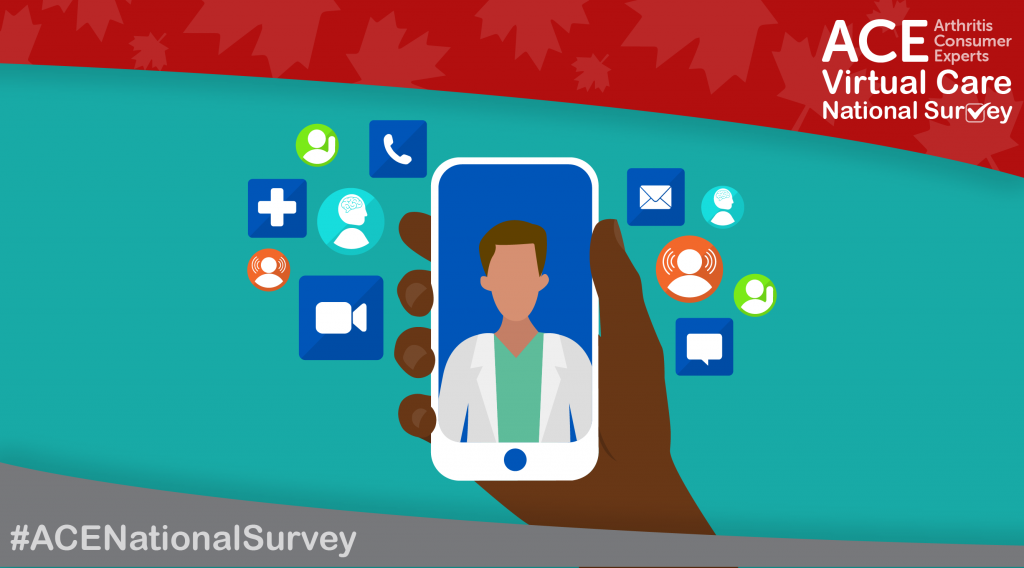
Arthritis Consumer Experts (ACE) conducted a national survey, in English and French, from January to February 2021. The aim of the survey was to understand the arthritis patient community’s experiences using virtual care services before and during the pandemic as well as their preferences on how virtual care services are delivered in the future. ACE recently published a summary of respondent’s answers to the survey questions, including general high-level findings.
This issue of JointHealth™ insight provides a deeper look at the findings specific to health inequities in virtual care.
We highlight how experiences using virtual care services and access to virtual care services differ among various demographic groups in the arthritis patient community. More specifically, findings from our survey suggest that members of the Black, Indigenous, and people of colour community living with arthritis are facing notable inequities in this area.
We hope that you will take the time to read the survey findings and infographic, and consider sharing them with members of your network.

A note on the underrepresentation of Black, Indigenous and people of colour
A key goal of the survey was to understand how access to virtual care services, and experiences using virtual care services, differ among various groups in the arthritis patient community. In other words, to identify differences in respondents’ experiences using virtual care services that are unjust. Although the survey had responses from across different age groups, disease areas, genders and urban/rural locations, there was not equal representation across racial groups. This is to say that white respondents were overrepresented, and non-white respondents were significantly underrepresented. More specifically, only 5.5% of respondents identified as Black, Indigenous, or a person of colour (BIPOC). When it came to the French version of the survey, there were no BIPOC respondents.
This major underrepresentation of BIPOC respondents is a very important finding in and of itself. It suggests that racial minorities are generally being excluded from networks in the arthritis patient community. This means the voices and experiences of BIPOC people living with arthritis are largely going unheard. This is a particularly significant problem due to the fact that BIPOC people are actually more likely to experience negative health outcomes (due to systemic racism) in a number of disease areas, including arthritis. Patient organizations, including ACE, must do a better job of reaching these communities.